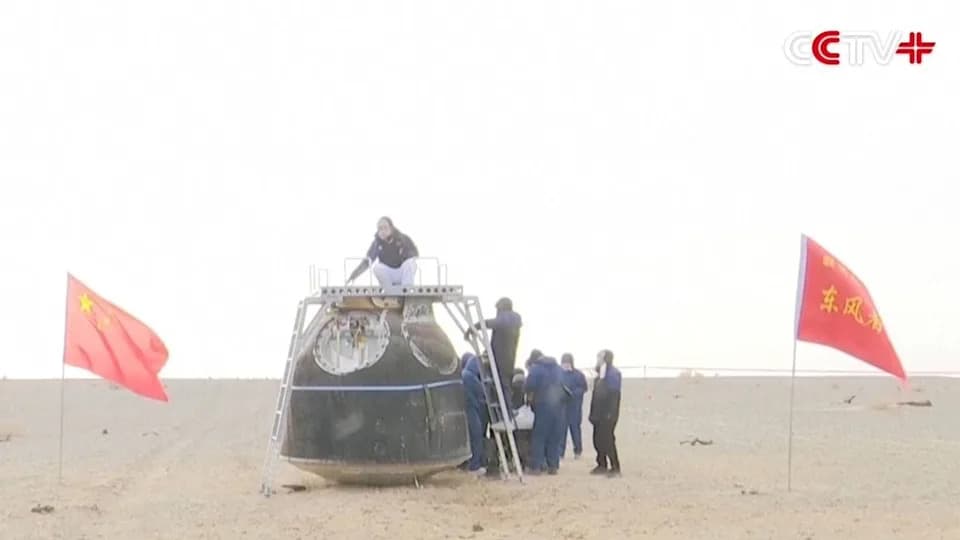The Nov. 5 undocking of Shenzhou‑20 has been postponed after the spacecraft was suspected to have been struck by orbital debris. Engineers are assessing damage while the three taikonauts — Wang Jie, Chen Zhongrui and Chen Dong — remain on Tiangong with their replacements. It is unclear whether the impact occurred while docked or after undocking; the crew could return on Shenzhou‑21. Experts say removing a small number of high‑risk debris objects could cut collision risk by over 30%, but funding and coordination are hurdles.
Shenzhou‑20 Return Postponed After Suspected Orbital Debris Strike — Crew to Remain on Tiangong

Shenzhou‑20 Return Delayed After Suspected Debris Impact
A planned Nov. 5 return of the Shenzhou‑20 crew has been postponed after the spacecraft was suspected to have been struck by a small piece of orbital debris. Engineers are conducting a detailed assessment of the impact and any related risks; until those checks are complete, the three taikonauts will remain aboard the Tiangong space station alongside the crew that recently arrived to replace them.
Crew and timeline: Wang Jie, Chen Zhongrui and Chen Dong launched to Tiangong in April 2025 for an approximately six‑month mission. Their replacements arrived on Oct. 31 aboard Shenzhou‑21. The original undocking and return planned for Nov. 5 has been postponed while teams evaluate the spacecraft.
"The Shenzhou‑20 crewed spacecraft is suspected to have been struck by a small piece of orbital debris, and assessment of the impact and associated risks is currently under way. To ensure the safety and health of the astronauts and the success of the mission, it has been decided that the Shenzhou‑20 return mission...will be postponed."
The Chinese space agency has not confirmed whether the suspected strike occurred while Shenzhou‑20 was still docked to Tiangong or after it had detached in preparation for re‑entry. Officials say contingency procedures exist: the stranded crew could return aboard Shenzhou‑21, which delivered their replacements to the station.
Why it matters
This incident underscores the growing hazard posed by orbital debris as more objects accumulate and fragment in low Earth orbit. Even small pieces of junk can damage spacecraft or create mission‑critical failures. Ironically, China recently added extra micrometeoroid and orbital debris shielding to parts of the Tiangong complex, highlighting the persistent and unpredictable nature of the threat.
Recent research suggests that targeted removal of a relatively small number of high‑risk debris objects could substantially reduce collision risk — for example, removing about 10 specific pieces might cut the overall collision probability by more than 30% — but financing, technology and international coordination remain major barriers to large‑scale cleanup efforts.
What comes next: Engineers will complete structural and systems checks on Shenzhou‑20 and verify crew health and safety before approving any return. Chinese officials will announce next steps when assessments are finished.
Help us improve.























